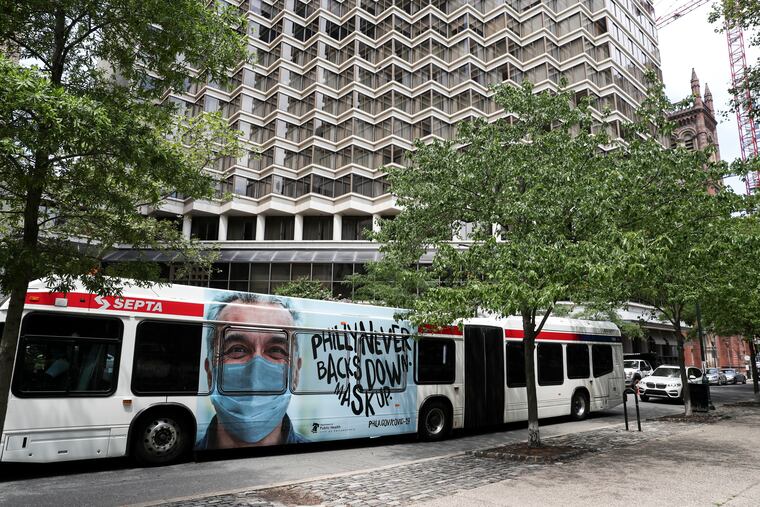Federal appeals court strikes down SEPTA’s ban on political advertising, saying it has been arbitrarily applied
The decision marks the third time since 2015 that the agency has been ordered to revise its controversial policy on which ads it will run on buses, trains and on SEPTA property.

A federal appellate court on Monday struck down SEPTA’s ban on advertising it deems to be political or involving matters of public debate, finding the agency has inconsistently applied it and violated the free speech rights of rejected advertisers.
The decision by a three-judge panel of the Philadelphia-based U.S. Court of Appeals for the Third Circuit is the third time since 2015 that the agency has been ordered to revise its controversial policy on which ads it will run on buses and trains, and on SEPTA property.
The current case revolved around a proposed ad highlighting racial disparities in the mortgage lending market submitted in 2018 by the California-based nonprofit news organization the Center for Investigative Reporting (CIR).
SEPTA rejected CIR’s ad, which took the form of a comic strip entitled “A Stacked Deck” and highlighted its reporting that applicants of color were more likely to be denied mortgages in 61 metro areas, saying it ran afoul of restrictions on advertising that could be construed as political.
The news organization challenged the decision in court, prompting a federal district judge to rule that year that portions of SEPTA’s policy were overly broad and should be amended, even though he concluded that CIR’s ads would still not pass muster under the revisions he had ordered.
In its ruling Monday, the Third Circuit disagreed. The panel — comprised of Joseph A. Greenaway Jr., David J. Porter and Morton I. Greenberg — concluded that the lower court’s revisions still could not ensure that the policy would be applied consistently.
The judges pointed to seemingly arbitrary past decisions that permitted some ads that could be perceived as politically sensitive — such as spots from the host committee of the 2016 Democratic National Convention and an ad featuring a Black youth under a slogan of “My Life Matters” — while rejecting others that touched on issues ranging from abortion to adequate pay for Art Museum employees.
In fact, the panel noted, SEPTA failed to consistently apply its policy even while discussing a hypothetical ad proposal during oral arguments before the circuit judges last year.
The judges asked whether an ad featuring three young girls of different races holding hands under the slogan “This is how racism ends” would run afoul of the ban. SEPTA’s attorney said at the time it would not.
But when the judges described the same photo under a slogan “This is what America looks like,” SEPTA’s lawyer said the decision would depend on who was seeking to run the ad.
“The lack of structure and clear policies governing the decision-making process creates a real risk that [the policy] may be arbitrarily applied,” the judges wrote in Monday’s opinion.
SEPTA adopted the current version of the policy in 2015, after a federal court struck down an earlier version of the ban in a challenge brought by an anti-Muslim group that had sought to run ads proclaiming “Jew Hatred: It’s in the Quran” alongside photos of Adolf Hitler.
Reggie Shuford, executive director of the ACLU of Pennsylvania, which represented CIR in the case, hailed Monday’s decision as a victory.
“The Center for Investigative Reporting has important information to share with the public, that racial discrimination is rampant in mortgage lending in Philadelphia,” he said in a statement. “As a government agency, SEPTA is limited in its ability to decide who does and does not get to be heard in the public space.”
A spokesperson for SEPTA did not respond to requests for comment.